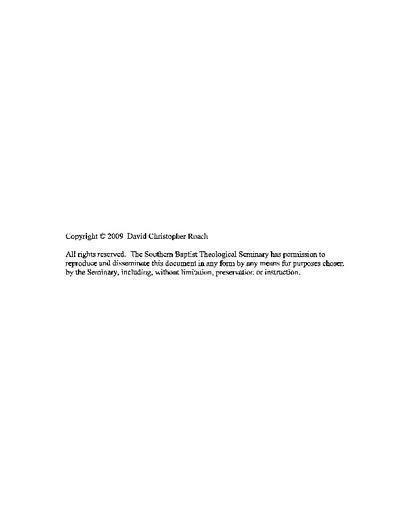The Southern Baptist Convention and civil rights, 1954-1995
Subject
Southern Baptist Convention--HistorySouthern Baptist Convention. Christian Life Commission
Civil rights--Religious aspects--Baptists
Southern States--Race relations
Abstract
Conservative theology was consistent with the advance of racial justice in the Southern Baptist Convention during the second half of the twentieth century. Historians have downplayed the role of conservative theology in the advancement of racial justice within the Southern Baptist Convention. Yet rank-and-file Southern Baptists went along with efforts to abolish segregation only when those efforts did not conflict with evangelical interpretations of Scripture.
Between World War II and the Supreme Court's school desegregation decision, Southern Baptists from all theological camps advocated racial equality. They did not consider, however, that a belief in equality might conflict with segregation. The changing social climate between 1955 and 1970 drove Southern Baptists to reflect on segregation and subsequently to change their views based on their theology.
Even within the theologically liberal Christian Life Commission, progressive thinkers appealed to evangelical theology to move their denomination on the race issue. Southern Baptist seminaries and colleges gradually integrated and appropriated conservative theology to gain support from the denomination.
African Americans felt evangelical theology logically demanded racial inclusiveness and wondered why the Southern Baptist Convention failed to live up to the theology it professed to believe. By the 1980s, evangelical views had established denominational opinion in favor of racial equality and integration. Because of the widespread agreement on race, people on both sides of a denominational controversy agreed in their approach to race despite disagreeing on a host of other issues.

